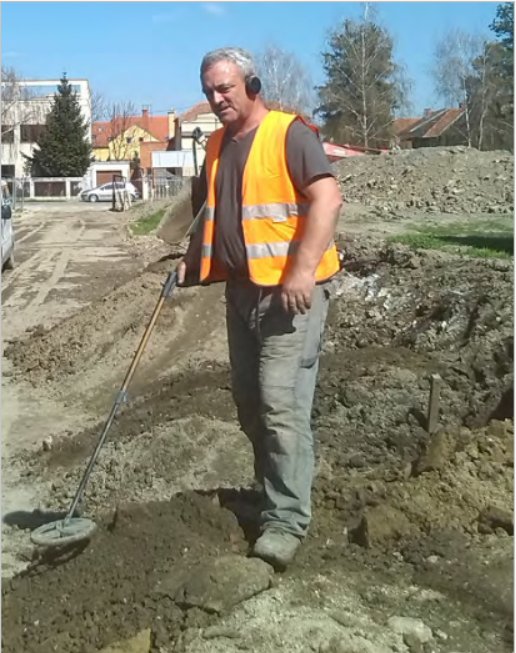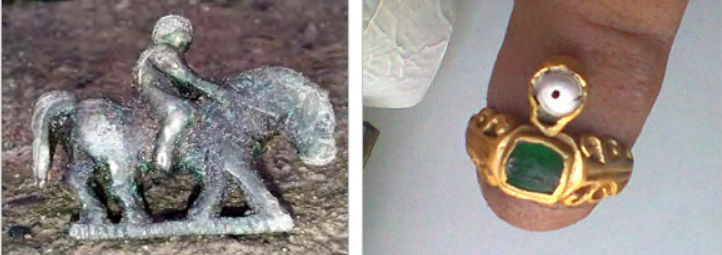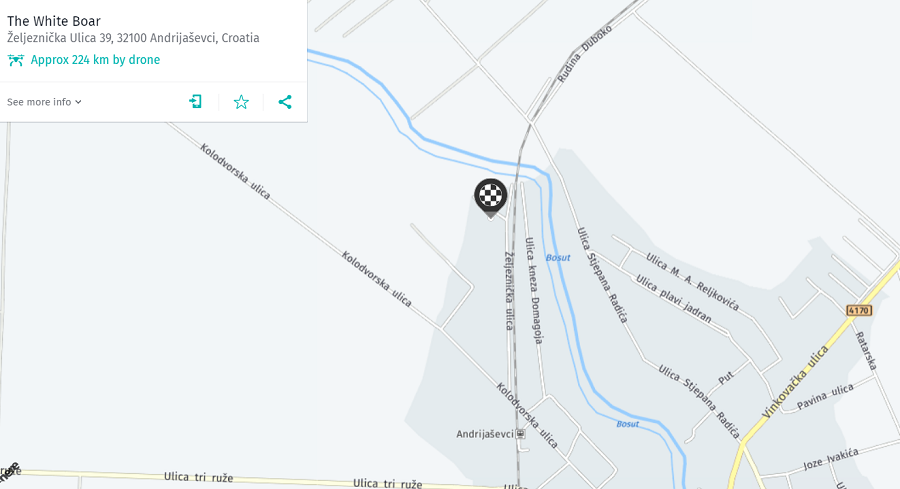A Welsh Telephone Box & English Pub in Eastern Croatia
March 19, 2023 - Croatia is a land of stories - meet one of the more unusual ones, a British corner of eastern Croatia in the latest from the Fat Vlogger.
What is the most random thing you have seen in your time in Croatia?
On my first visit to Vinkovci a few years ago, claimed as the oldest continuously inhabited town in Europe, stood something totally bizarre.
A red British telephone box.
How the hell did it get there, and why?
And so began a rather fascinating journey and one of the most unusual stories of my time in Croatia.
Which featured a very contented Yorkshireman from Leeds, who had been living in Vinkovci for over 30 years after coming to volunteer during the war in 1991.
To find out why there is a Welsh telephone box in the middle of Vinkovci and an English pub in a field in the middle of nowhere in eastern Croatia, check out the latest from the Fat Vlogger. Premiering at 19:53 tonight.
****
You can subscribe to the Paul Bradbury Croatia Expert YouTube channel here.
What is it like to live in Croatia? An expat for 20 years, you can follow my series, 20 Ways Croatia Changed Me in 20 Years, starting at the beginning - Business and Dalmatia.
Follow Paul Bradbury on LinkedIn.
Croatia, a Survival Kit for Foreigners is now available on Amazon in paperback and on Kindle.

Meet Croatia's Most Contented Man: a Dour Yorkshireman in Vinkovci
May 30, 2022 - Complaining is a national sport in Croatia, but tucked away in a remote field near the historic eastern town of Vinkovci, I think I have found the most contented man in the country - a dour Yorkshireman named Steve.
Complaining is a way of life in Croatia (as in other parts of the world, no doubt), and I have lost count of the number of times I have been sat alone at a cafe with a cold one and been subjected to rants at the table next to or behind me. As much as I love living here for the last 20 years, this tendency to complain and focus on the negatives is one thing I like least. For all the goodness in this country to celebrate, it is usually the negative aspects that make the headlines. Such is life, here and elsewhere. While I too see things to complain about, I see little reason to voice those feelings unless we are going to do something about it. And with the culture of complaining over a coffee usually the extent of the action, very little changes.
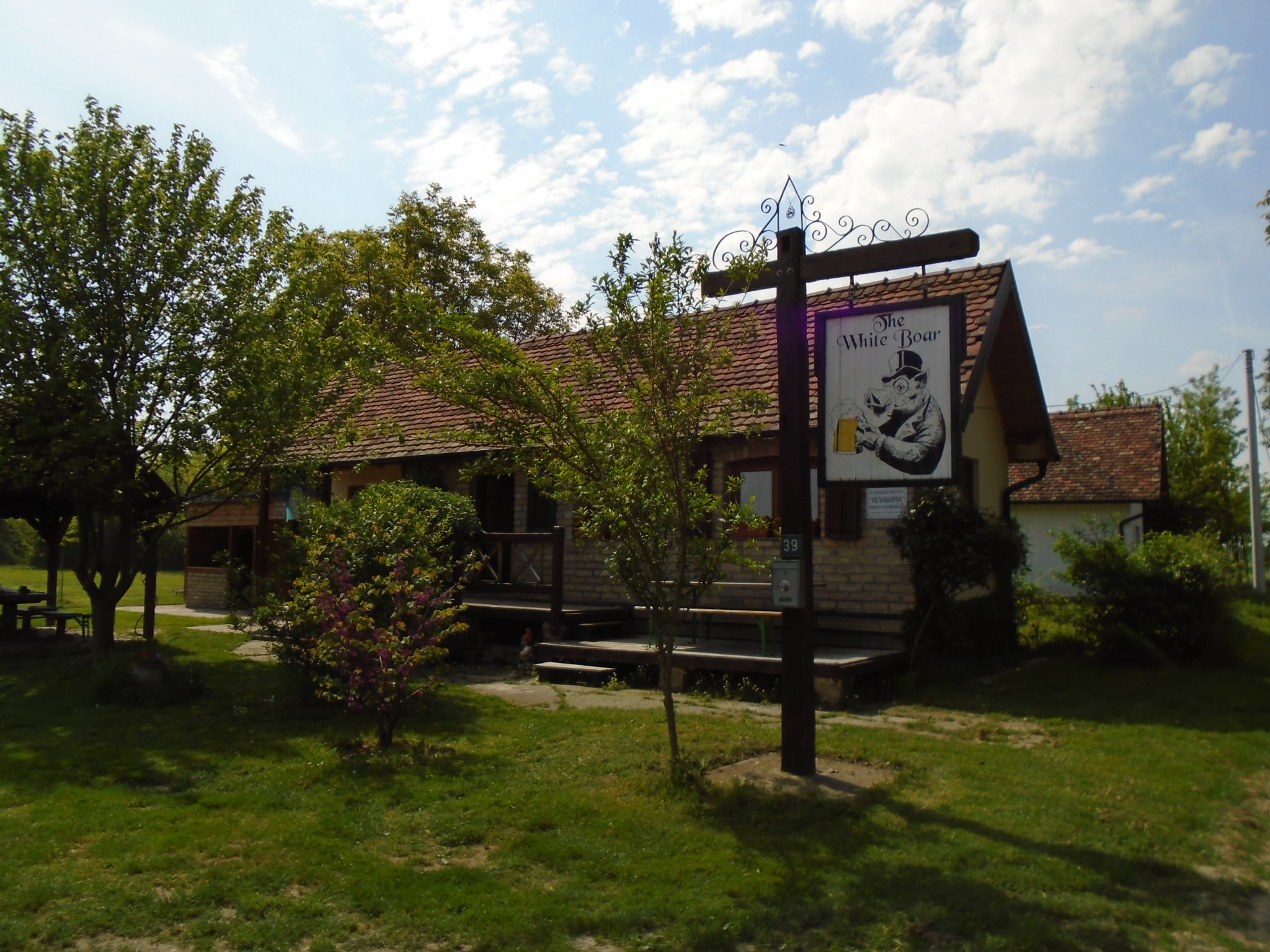
Which is why I really appreciate - and warm to - positive people who may well have lots to complain about in life, but they prefer to focus on the positives.
One of my favourite places to hang out in this country is one of its most surreal hostelries - an authentic English pub quite literally in a field in the middle of nowhere in eastern Croatia, about a 10-minute drive from the historic town of Vinkovci. The White Boar is owned by a dour Yorkshireman called Steve Gaunt, who has added plenty of colour to life in Vinkovci since arriving in 1991 as a volunteer to fight for Croatia in the Homeland War.
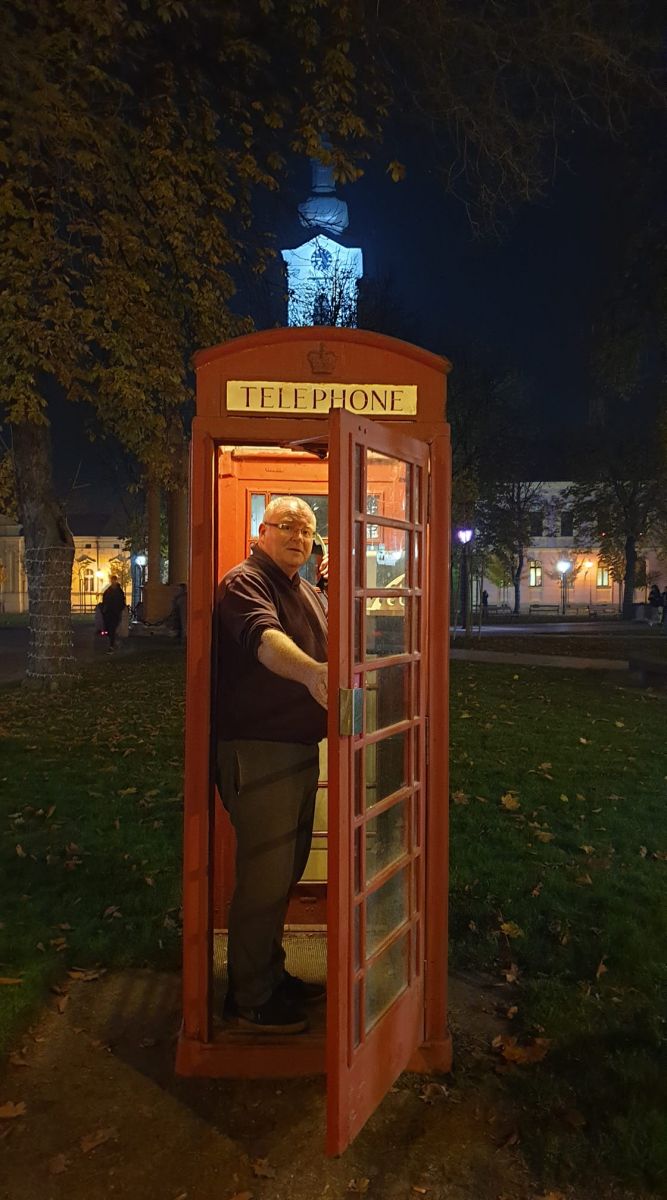
Wounded in the war, Steve's impressive repopulation efforts in a land of emigration and population decline (6 kids with his lovely local life) are just the tip of the iceberg of his contribution to life in the east over the last 30 years. In addition to adding Yorkshire puddings to a Vinkovci restaurant menu and being responsible for the installation of a (still-functioning) London red public telephone box in the historic centre, Steve has made countless contributions to the cultural offerings of the local museum through his metal detecting finds.
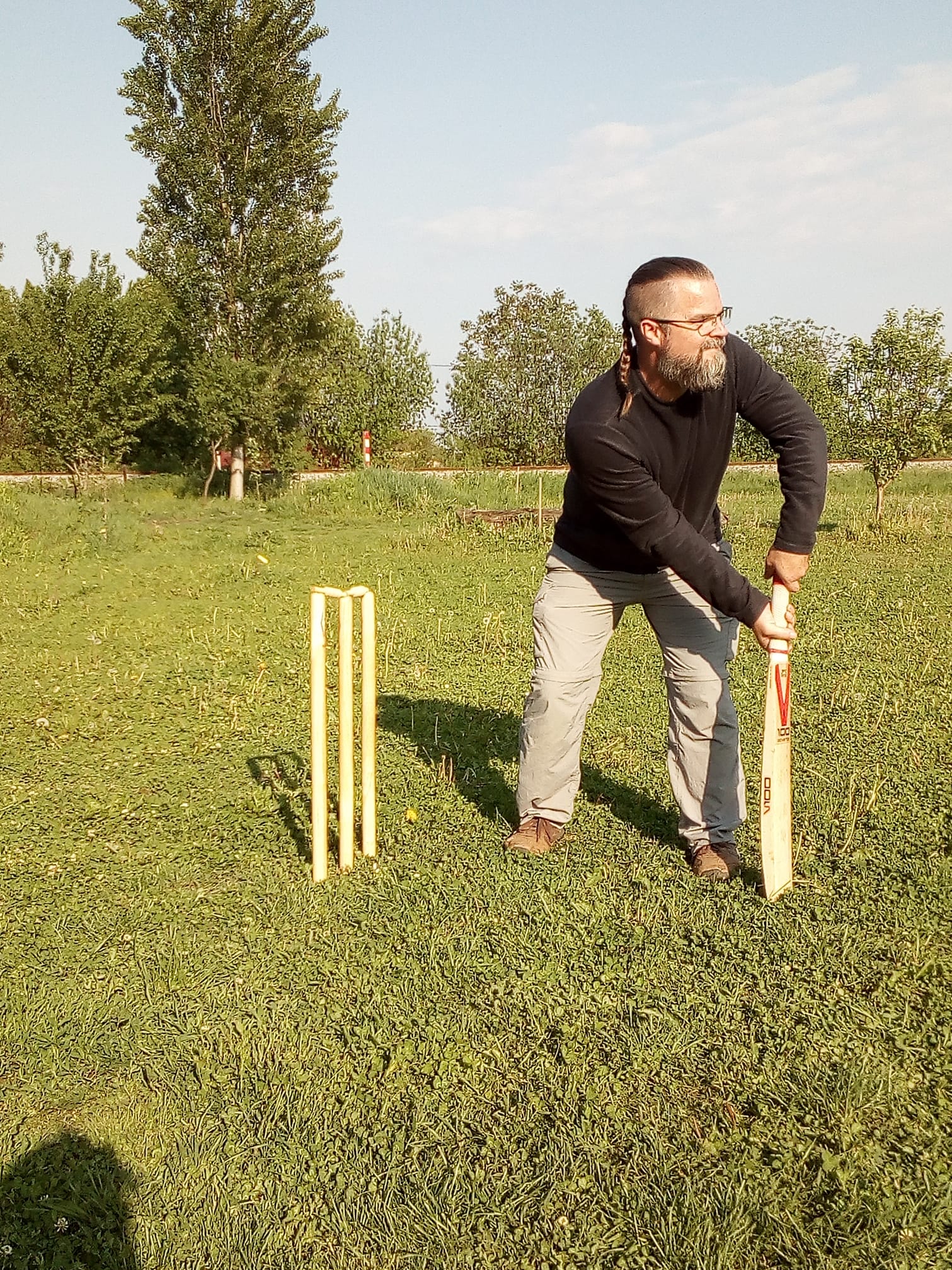
But it is his beloved pub where Steve comes into his own, and where I have rarely seen anyone as contented in their surroundings as this guy. He built the pub to have his own place to escape, a place to chill with his mates and family, to drink when he liked, and to experiment with other projects too. A keen cider drinker, he has slowly been mastering the art of cider production as one of his latest hobbies.
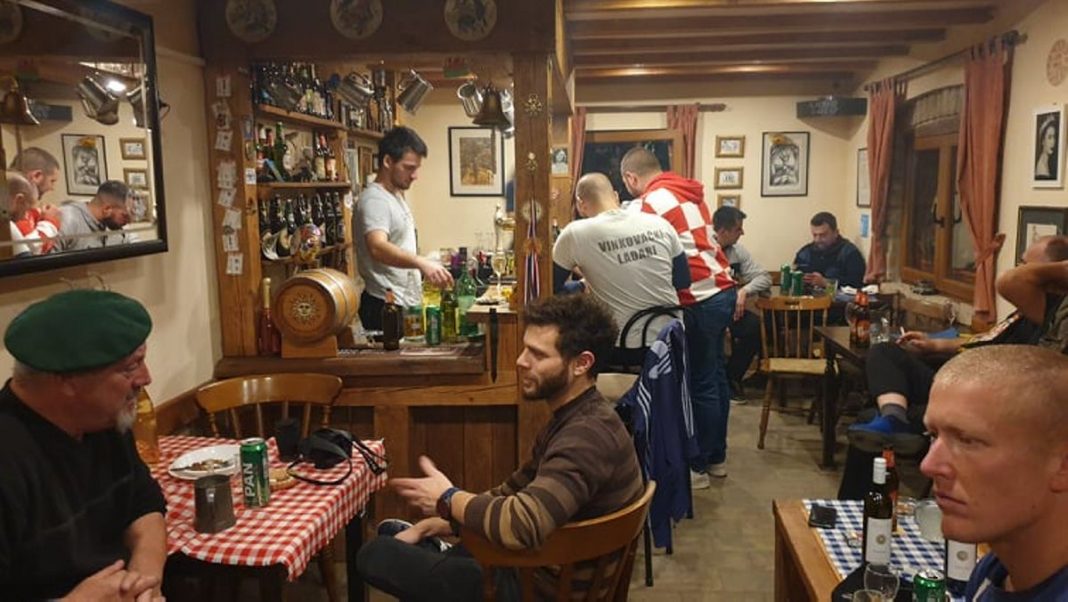
I first met him on Vukovar Remembrance Day on November 18 a few years ago, as he was hosting a barbecue for all the foreign veterans who had travelled for the anniversary. it was certainly one of the most unusual nights of my time in Croatia.
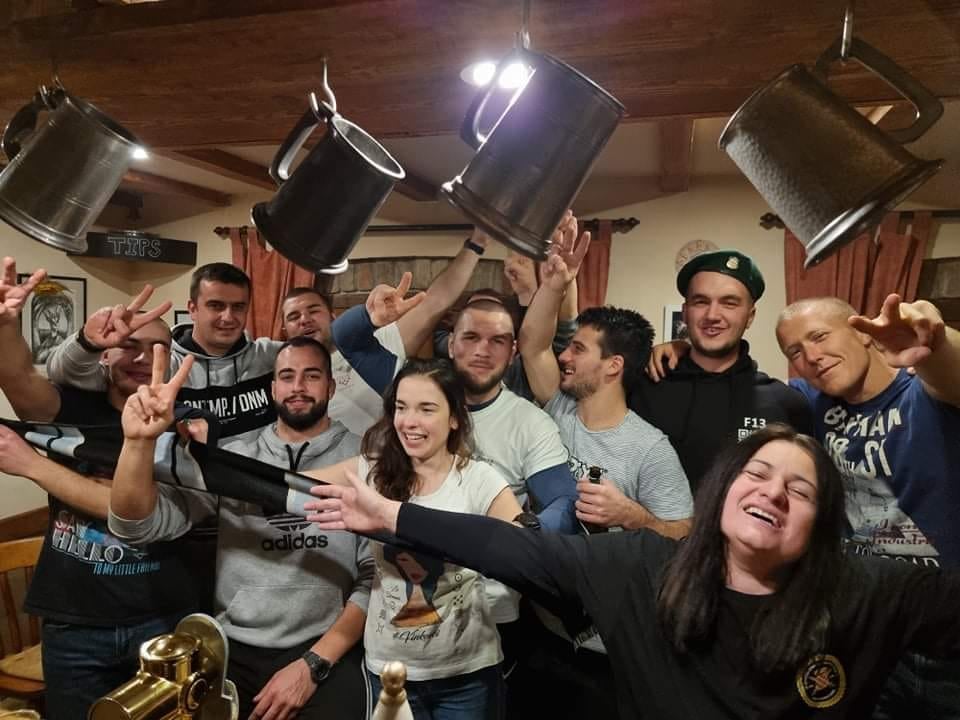
But it was on my last visit to The White Boar a few months ago that I realised just how contented this dour Yorkshireman was. I was visiting with an English friend on business in Osijek, who didn't quite believe that The White Boar really existed.
It was a fun visit, full of laughter and good conversation, with our choice of music on the jukebox (The Smiths). With no neighbours.
I remember two things Steve said that day that prompted this article.
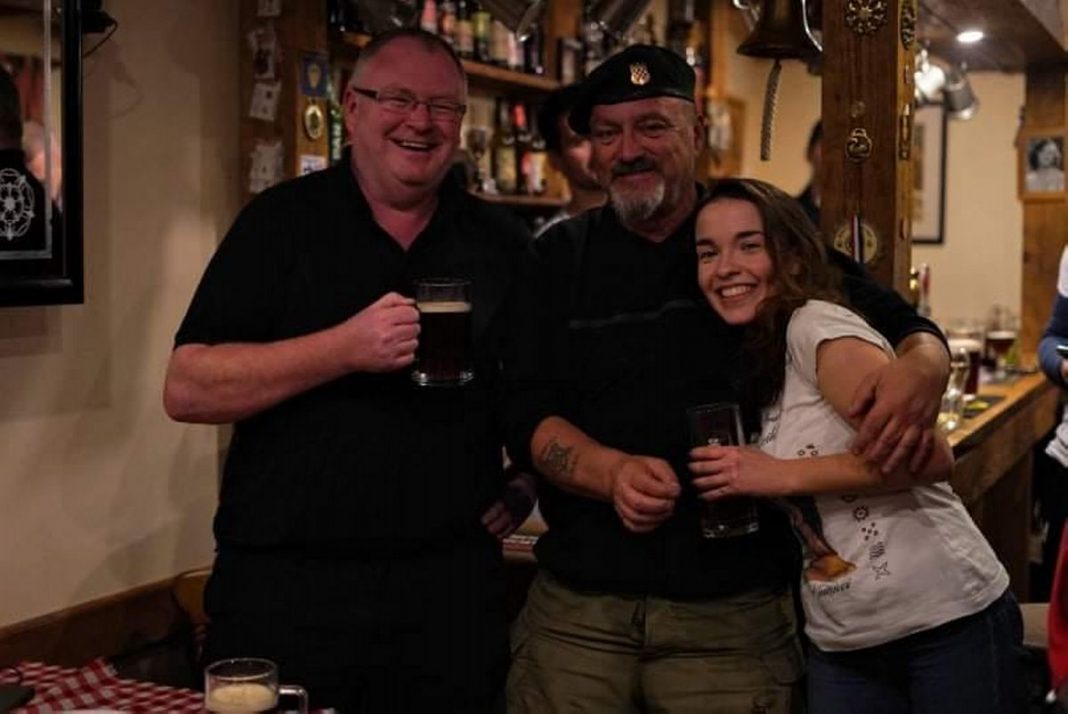
"I have everything I need here. Vinkovci (population about 30,000) gives me everything I need." With so many others complaining that there is no life in the east, it struck me that here was a man of modest needs, appreciative of the things that others did not see.
At one point, he looked his watch, turned down the music, asked us to be quiet, and looked out the window.
"Did you hear that?" as a train passed by along the nearby track. "That is the only sound I hear all day from a neighbour."
Bliss.
Life in your very own English pub in a field in the middle of nowhere, with opening hours to suit you, and your own selection of beer and music. And what tune did our dour Yorkshireman choose to highlight his contented status in life. You guessed it, Heaven Knows I'm Mierable Now by The Smiths. Which goes something like this when sung by a man from Leeds.
Croatia off the beaten path is a constant voyage of unique discovery, even though I have been here for 20 years. There are lots of similar bubbles of contentedness such as Steve all over the country, and discovering them one by one is yet more magical reason to live in Croatia.
And yes, The White Boar really does exist. You can follow it on Facebook.
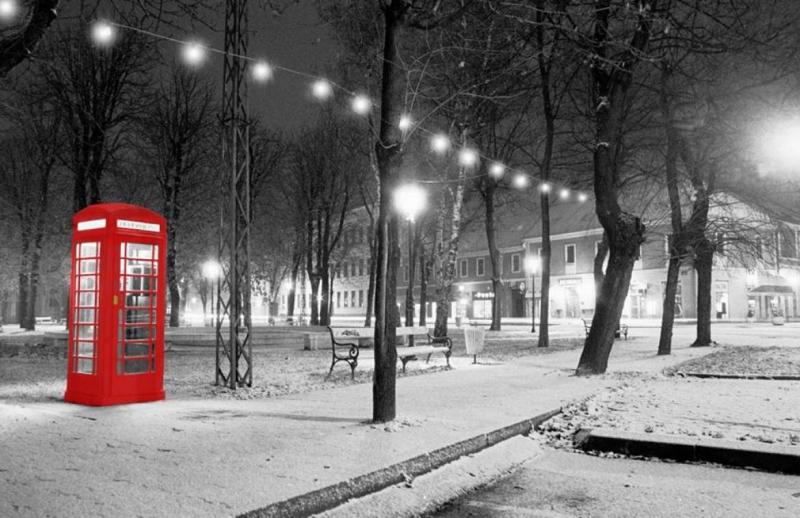
And if you are curious about how a red London telephone box came to reside in central Vinkovci, read on...
I am always in search of undiscovered stories and bubbles of contentedness in Croatia, so if you have one you would like to share, contact me on This email address is being protected from spambots. You need JavaScript enabled to view it. Subject Bubbles.
Foreigners Self-Isolating in Croatia: Do You Feel Safer? Steve from UK in Vinkovci
March 31, 2020 - Do foreigners in Croatia feel more or less safe sitting out COVID-19 here than in their home country, and what are their experiences? A new series on TCN, starting with Steve Gaunt from Leeds in the UK, currently holed up in Vinkovci.
Oxford University recently published some research on government responses to coronavirus which showed that Croatia currently has the strictest measures in the world. While inconvenient, this is a good thing in terms of reducing the spread of the virus, and I am certainly not alone in my admiration of the official Croatian handling of this crisis in recent weeks, both in terms of action and communication.
But what do other expats here think? And how does it compare with the response in their home country? Would they rather sit this one out here or there? In the first of a new series on TCN, we will be featuring expats from all over the world to see what their views are on life in corona Croatia rather than back home. Having started with an excellent contribution from Romanian Mirela Rus and American/Irishman Jason Berry in Split, we move to an English pub in a field in the middle of nowhere near Vinkovci in eastern Croatia to see how things are with Yorkshireman Steve Gaunt from Leeds.
If you would like to contribute to this series, full details are below. Now, over to the one and only Steve Gaunt.
Firstly, how are you? Are you alone/with someone? Tell us a little about your situation and sanity levels.
Well, I have a large family, my wife and six children and all but one are with me. I am a very flexible person when it comes to change around me; I may not like it, but I can certainly deal with it. I have always dealt mentally with problems with humour, but there is little humour to find in the current situation.
The biggest problem is how it is affecting my children, especially those who should be at University in Zagreb. My daughter Emma doesn't know what the state of affairs is regarding her apartment in Zagreb after the earthquakes, and she and my son Daniel are finding it difficult to proceed with online studies as they have no access to their books, notes and other material. Luckily we all have access to computers so the younger children can still keep up with school work online. My wife Dragica works for the Red Cross and is allowed to move freely.
I admit I was confused and annoyed when restrictive measures came into force one after another, but I am much more at ease with them now than I thought I would be. We had a problem that my son Daniel was stranded in a village not too distant and couldn't come home.
You asked how we deal with "self-isolation" but the fact is we are not doing anything different other than what is forced upon us, like the schools being closed or businesses being shut down.
I can still travel to my land in a nearby village without hindrance and I can work on my land and enjoy a beer in my pub. I also have a pass which was very easy to procure and can travel a little further afield. I also got a pass for son Daniel so he can now return home should he wish, but he still hasn't. I see very few people about town but many in the countryside, walking, jogging, riding, biking and I feel they are absolutely right to do so; nobody should be isolated by walls, they should be in the fresh air and sun, isolated only by natural space. But the easy to follow basic rules should always be adhered to.
On my land it is rare to see more than one or two people passing each day, nowadays dozens come by each day. People are sociable animals, and it is comforting to see people passing by and enjoying the fresh air and greeting each other (though at a safe distance!). In the town it is different, the few people who venture abroad scurry about with their masks on, trying to avoid each other. Depressing to witness.
What do you think about the economic measures the government is taking, are they helping your business?
As an army invalid and pensioner, this doesn't really apply to me, though it doesn't stop me from being concerned. Croatia has never had the best economy, though we seemed well blessed by having a stable currency. I worry about small businesses and their ability to ride out this period of inactivity, but Croatians know how to deal with serious problems as the Homeland War showed.
When did you realise that corona was going to be a big issue?
I realised quite late. I am used to seeing news predicting or discovering potentially disastrous calamities. Swine Flu, Bird Flu, Global Warming caused freak weather and more. The media loves a good disaster, so I took it all with a pinch of salt. I wasn't even concerned with the spread patterns and actually became less concerned when it was revealed that the virus wasn't airborne. But the daily death toll in neighbouring Italy really put things in perspective for me.
My son Paul and I succumbed to a nasty case of flu in early February. It passed quickly for him but laid me low for three weeks. Comparing the symptoms then to the symptoms known today for the Covid virus, I see they were very similar. I wasn't concerned at the time but if this flu attack had have happened now, I admit I would be very frightened. I take it seriously. If I catch this virus, I know it will kill me.
What is your impression of the way Croatia is dealing with the crisis? How safe do you feel?
I feel safe enough, though I take care. Not to the ridiculous extent that some citizens have, like locking themselves in their homes, but enough to avoid any situation that could infect me or my family. Croatia is a country used to doing what it is told and the measures placed upon the populace through repressive are effective. Nobody seems to be complaining. The virus came to us locally recently and that caused anger more than pity, that the carrier could have been so careless. There is little more the authorities can do and hopefully folk with tolerate the annoyances of restriction, but the question is, for how long?
There is one stage of regulation I will not conform with, however, and that is being forced to wear a mask.
Now compare that to your home country and how they are handling it. What is Croatia doing better/worse?
Well that is an easy question, Croatia is doing very well, not just the authorities but the general population. I sometimes think Croatians welcome a crisis, just to show how they can deal with it and rise above it.
What about official communications from the authorities, compared to your home country?
I cannot speak for the UK as I have no information regarding offical communication. But here it is endless. It is this continuous barrage of news, information, warnings and instructions that worry me more than the thought that the virus could affect my family and friends. There is literally nothing else on the News. The Zagreb earthquakes crept in for a while on a national level, though friends and family in the UK had no idea of the disaster.
What's the one thing you wish you had taken with you into self-isolation?
As I said earlier, our isolation is natural or forced on us by circumstance. I can't go for a beer in a bar or to a restaurant for a meal, but then I didn't do that very much before. I can still travel a little, buy fuel, metal detect, cut the grass, prune my apple trees. The TV works and I have my books and my web sites to manage. I am actually more active than normal. If I was in total lockdown, I cannot think of a single thing I would take with me, other than prescibed medicine.
One thing you have learned about yourself, and one thing you have learned about others during this crisis.
That I am less selfish than I thought. I reserve comment on others.
Thanks Steve, stay safe and see you on the other side. You can learn more about Steve and how he came to open a pub in the middle of nowhere here.I am sure he will be glad of the company when this is all over, but at the moment there is a typically welcoming message from Yorkshire on the board at the moment (see below).
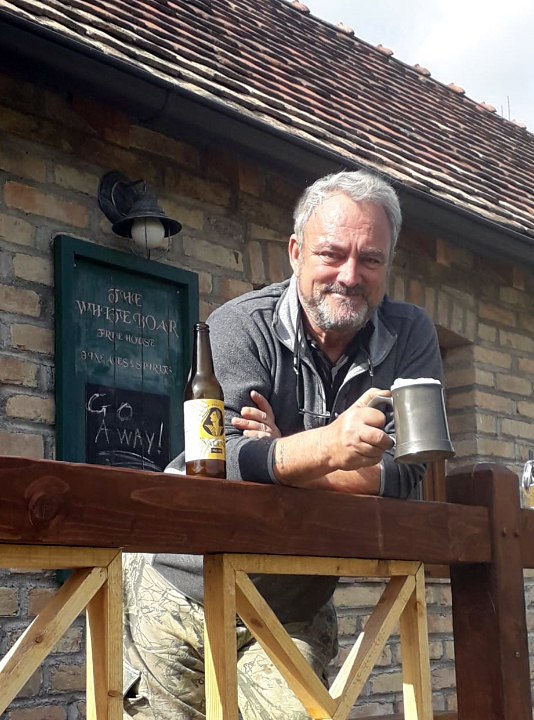
You can find more foreigner corona stories in our dedicated section here.
TCN is starting a new feature series on foreign experiences of sitting out covid-19 here in croatia compared to their home country. If you would like to contribute, the questions are below. Please also include a para about yourself and where you are from, and a link to your website if you would like. Please also send 3-4 photos minimum to This email address is being protected from spambots. You need JavaScript enabled to view it. Subject Corona Foreigner
If you would be interested to record a video version for our partners www.rplus.video please let us know in the email. Thanks and stay safe.
Foreigners Self-Isolating in Croatia: Do You Feel Safer Than in Your Home Country?
Firstly, how are you? Are you alone/with someone? Tell us a little about your situation and sanity levels.
What do you think about the economic measures the government is taking, are they helping your business? (PLEASE IGNORE IF THIS DOES NOT AFFECT YOU)
When did you realise that corona was going to be a big issue?
What is your impression of the way Croatia is dealing with the crisis? How safe do you feel?
Now compare that to your home country and how they are handling it. What is Croatia doing better/worse?
What about official communications from the authorities, compared to your home country?
What's the one thing you wish you had taken with you into self-isolation.
One thing you have learned about yourself, and one thing you have learned about others during this crisis.
TCN has recently become a partner in Robert Tomic Zuber's new R+ video channel, initially telling stories about corona experiences. You can see the first TCN contribution from this morning, my video from Jelsa talking about the realities of running a news portal in the corona era below. If you would like to also submit a video interview, please find Robert's guidelines below
VIDEO RECORDING GUIDE
The video footage should be recorded so that the cell phone is turned horizontally (landscape mode).
There are several rules for television and video news:- length is not a virtue- a picture speaks more than a thousand words
In short, this would mean that your story should not last more than 90 seconds and that everything you say in the report should be shown by video (for example, if you talk about empty streets, we should see those empty streets, etc.).
How to do it with your cell phone?First, use a selfie camera to record yourself telling your story for about a minute and a half. Ideally, it would be taken in the exterior, except in situations where you are reporting on things in the interior (quarantine, hospital, self-isolation, etc.). Also, when shooting, move freely, make sure everything is not static.
After you have recorded your report, you should capture footage that will tell your story with a picture, such as an earlier example with empty streets.
One of the basic rules of TV journalism is that the story is told in the same way as a journalist with his text. Therefore, we ask you for additional effort. Because we work in a very specific situation, sometimes you may not be able to capture footage for each sentence of the report. In this case, record the details on the streets: people walking, the main features of the city where you live, inscriptions on the windows related to the virus, etc.
The same rules apply if you are shooting a story from your apartment, self-isolation, quarantine. We also need you to capture footage that describes your story.
When shooting frames to cover your reports, it is important that you change the angle of the shot (in other words, shoot that empty street from several angles). Also, when shooting a detail, count at least five seconds before removing the camera to another detail.
The material should be about 5 minutes long (90 seconds of your report + frames to cover your story).
After recording everything, send us to Zagreb, preferably via WeTransfer to This email address is being protected from spambots. You need JavaScript enabled to view it.
Repairing a 25-Year-Old British Telephone Box in Europe's Oldest Continuously Inhabited Town
March 11, 2020 - It is 25 years since Vinkovci got a rather unusual gift from the UK - a traditional British telephone box, which continues to receive love and attention.
I am not sure what surprised me more - finding out that the oldest continuously inhabited town in Europe, dating back some 8,400 years, was in Croatia - or finding out that there was a traditional British telephone box which functioned right in the middle of the historic centre.
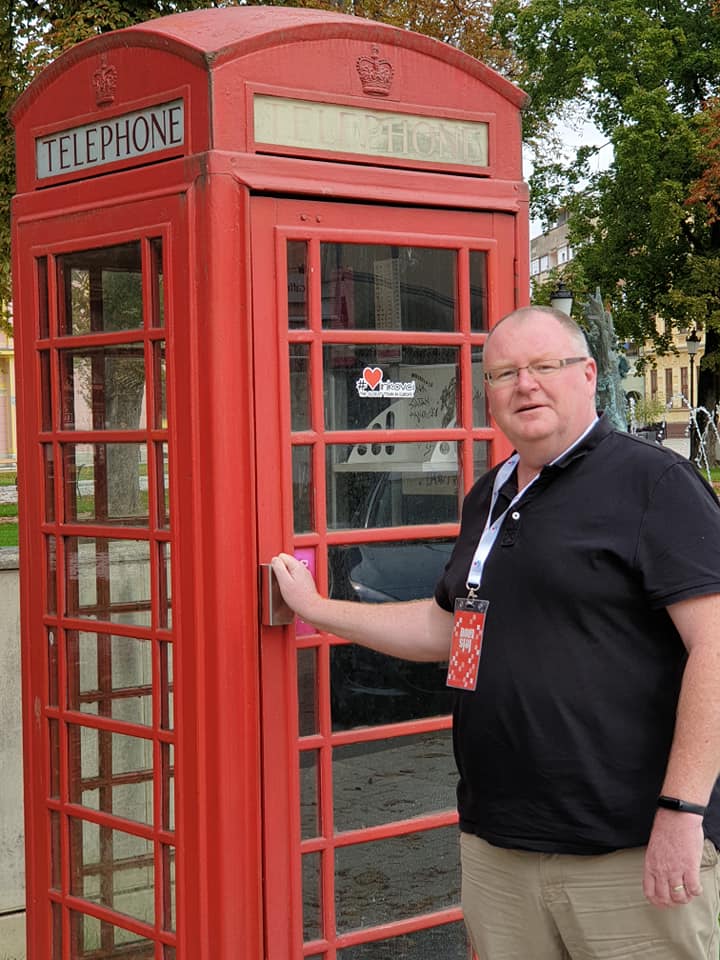
As is often the case when you see something that makes no sense, such as a British telephone box in the middle of eastern Croatia, the explanation can be attributed to a Yorkshireman.
It took me some time to get the full story of how the telephone box came to be in Vinkovci, and rather than repeat it, you can find the full account in this feature story on how and why there is an English pub in a field in the middle of nowhere a few kilometres from Vinkovci - How I Came to Open an English Pub in a Field in Eastern Croatia.
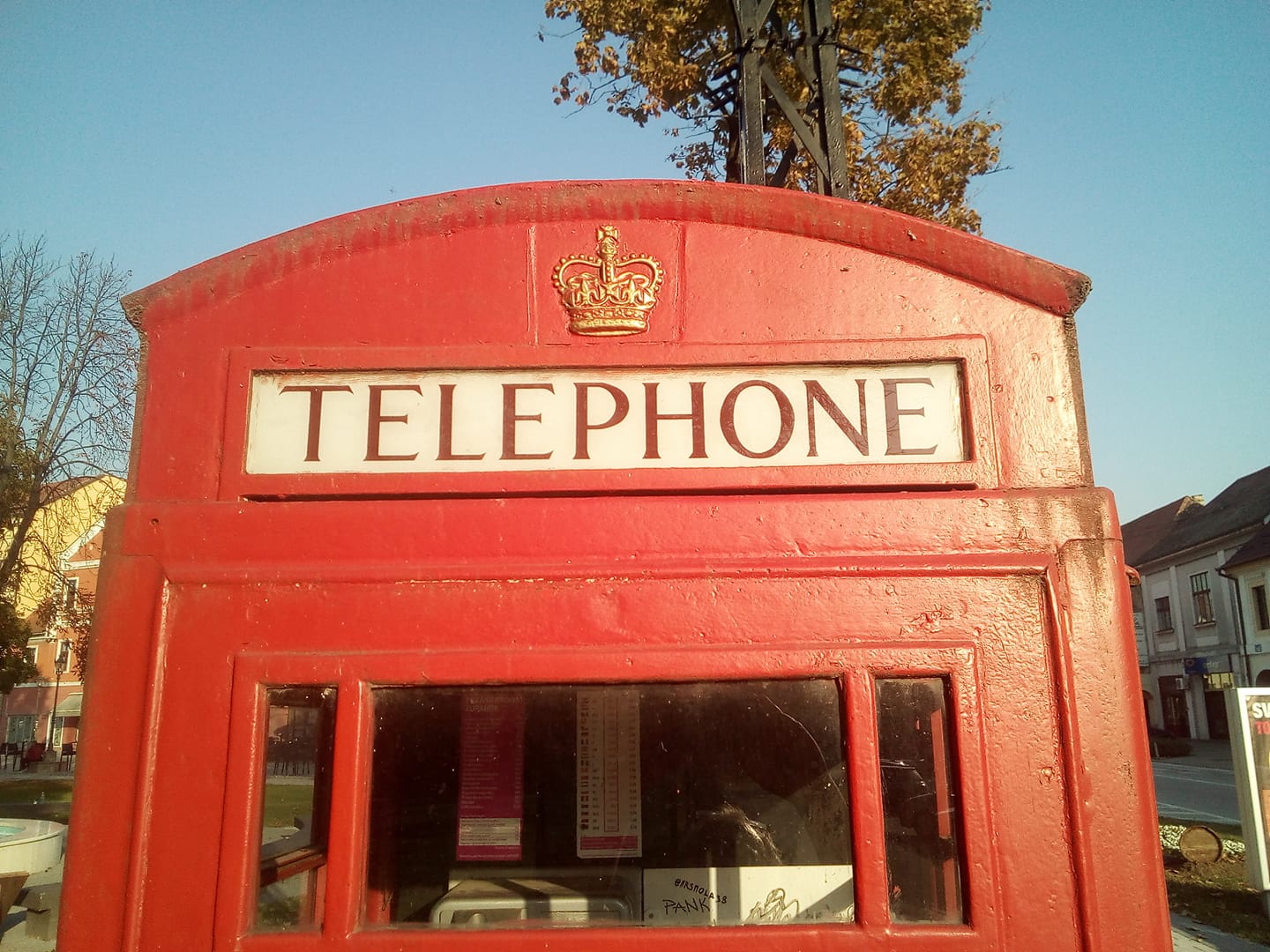
Since coming to Croatia to volunteer in the Homeland War, Steve Gaunt has made an immense contribution to life in Vinkovci, and he is clearly a man who takes pride in his work and believes in keeping things tidy. A few weeks ago he posted on Facebook that he had finally found some gold leaf paint, and so was able to touch up the telephone box, which had been looking a little jaded.
And this week, a slightly bigger mission, to replace one of the panels. Team Gaunt went into action, with the results for all to see in the video above.
A quaint - and unusual - part of Vinkovci's rich history, and nice to see it being preserved. Steve is a fascinating guy for a Yorkshireman, and if you do find yourself in that part of the world, a pint at The White Boar is a worthwhile eastern Croatian experience you had perhaps not bargained for. Learn more about The White Boar here.
To learn more about the oldest continuously inhabited town in Europe, here are 10 things to know about Vinkovci.
Metal Detecting Tours Near Europe's Oldest Town in Eastern Croatia: Fascinating!
January 18, 2020 - Croatia has a diverse tourism offer, but some of its most interesting aspects rarely hit the news. The fascinating story of metal detecting in an around the oldest continuously inhabited town in Europe - 8,300 years of treasure to discover.
It is quite rare for a man from Lancashire to publicly compliment a Yorkshireman, so I will keep this short - one of the most interesting characters I met last year in Croatia was Steve Gaunt from Leeds.
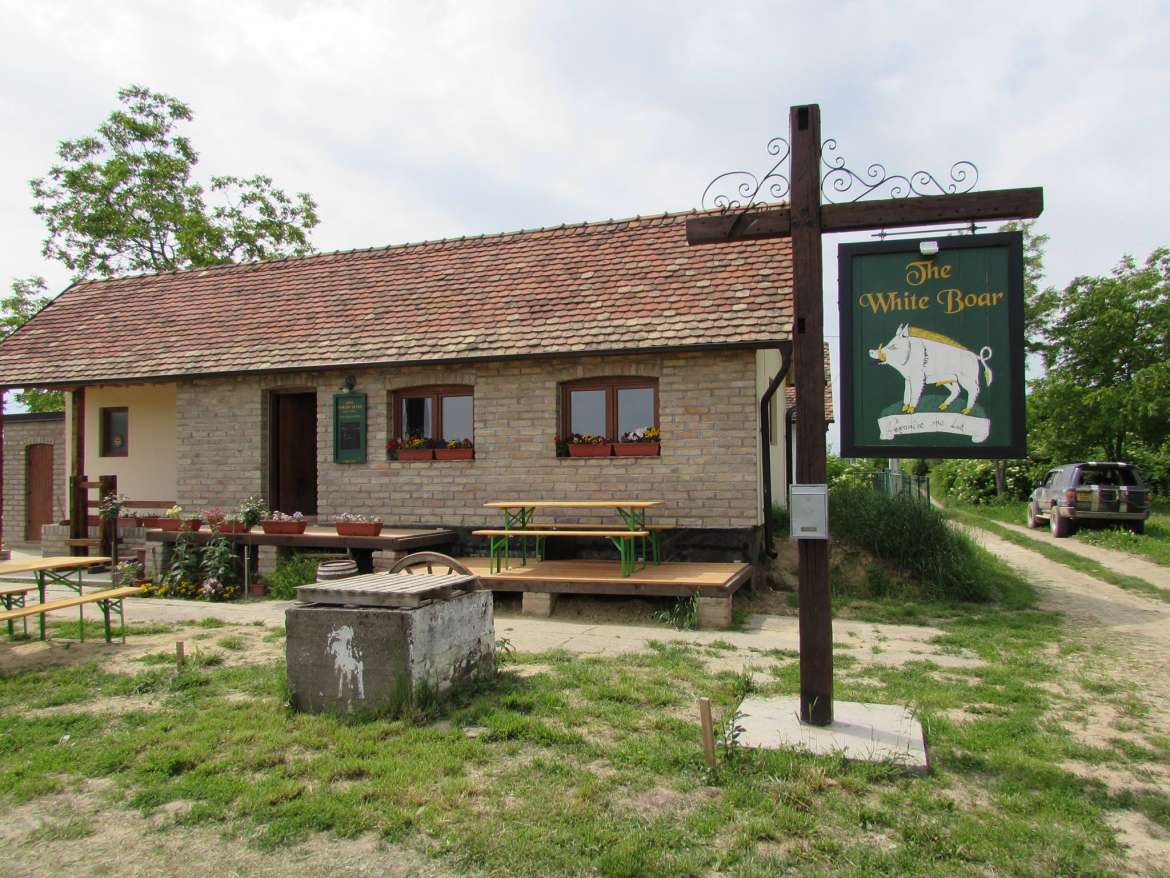
Having discovered that he was the man behind the red London telephone box which stands in the middle of Vinkovci, the oldest continuously inhabited town in Europe, I soon learned that he had made some other, equally quirky contributions to life in and around this historic eastern Croatian town. He introduced Yorkshire puddings to the menu of a Vinkovci restaurant, started producing the first cider in Croatia, and even opened an authentic English pub in the filed literally in the middle of nowhere.
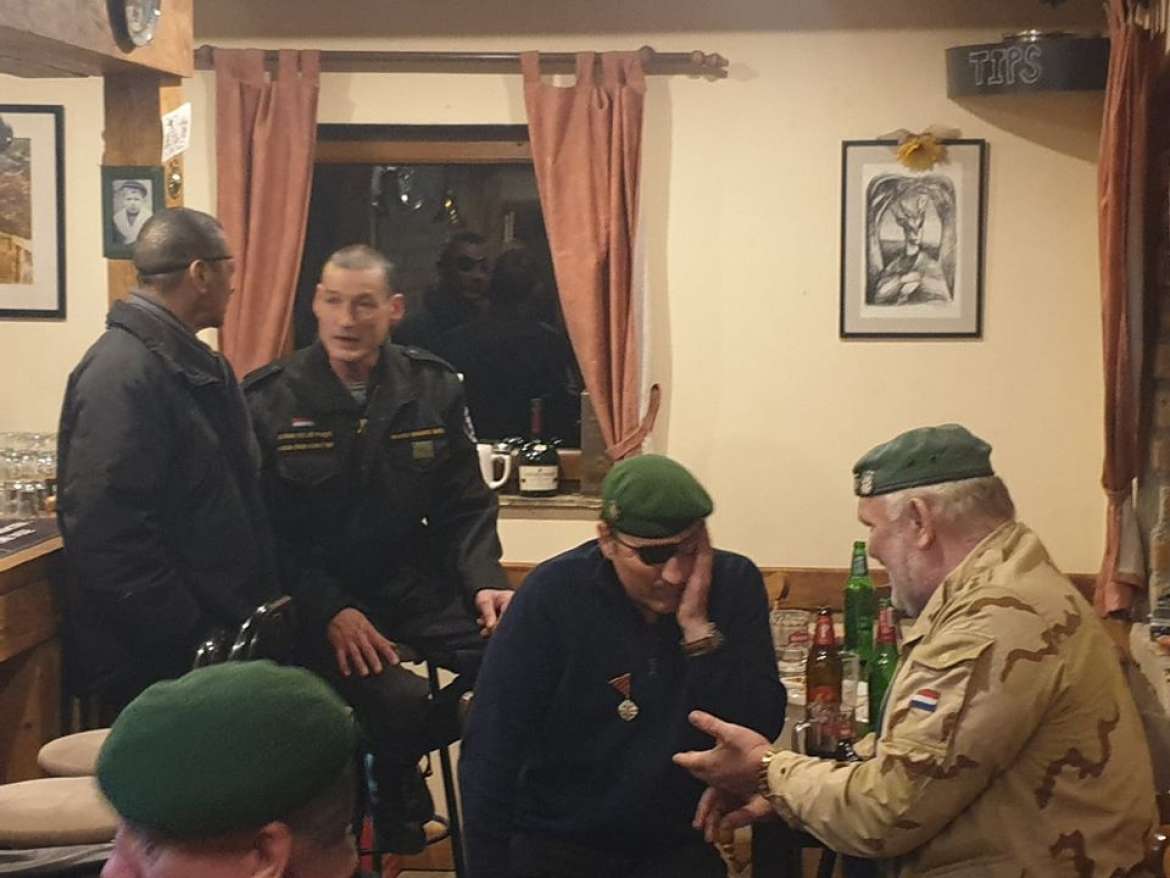
I finally met Steve on perhaps the most interesting night of the year at his pub, the White Boar. November 18, Vukovar Remembrance Day, as he holds a barbecue for all the foreign veterans who - like him - volunteered to fight for Croatia back in 1991 and 1992. It was quite an evening.
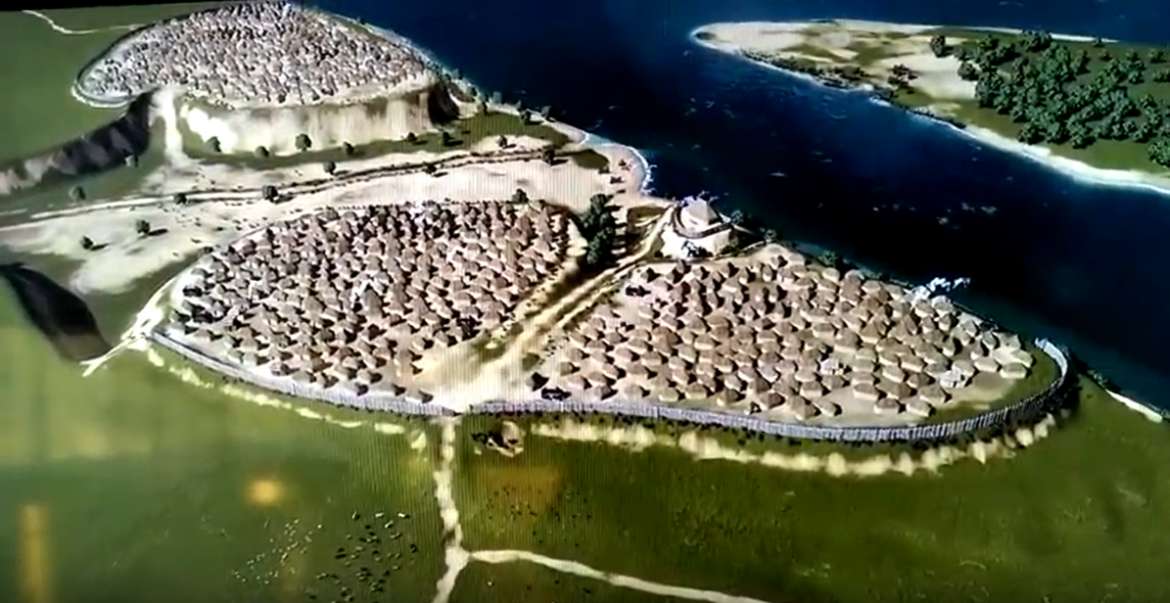
During the evening, he told me about another of his passions - metal detecting. He has been a keen metal detector for years, but imagine his joy when he found himself living in a town dating back 8,300 years, birthplace of two Roman Emperors, and just a short distance from the phenomenal Vucedol settlement, which we featured recently (see above).
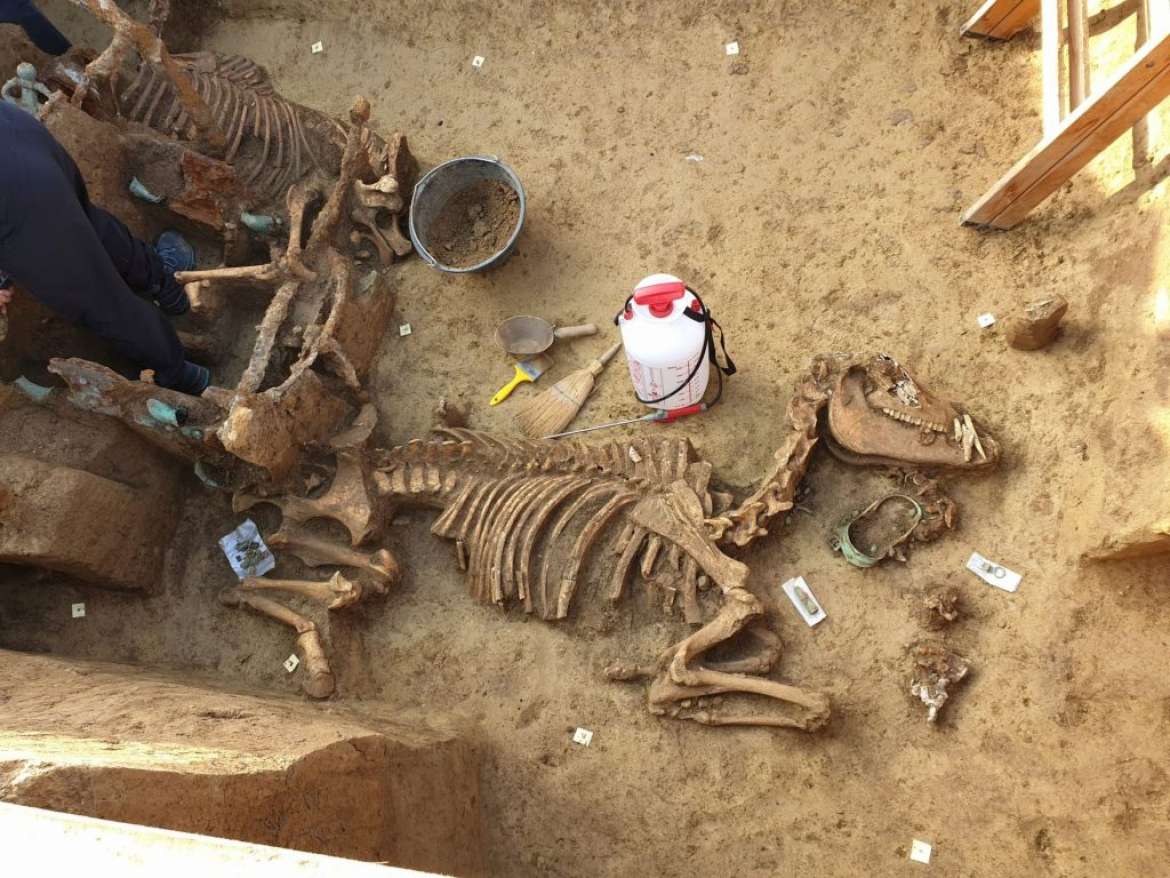
The recent find of a Roman chariot with horses close to Vinkovci was one of the global Croatian stories of 2019, and the more I looked into it, the more I realised that this whole section of eastern Croatia is arguably one of the richest untapped archaeological sites in Europe. And what a great playground this must be for a metal detectorist, provided he abides by the cultural heritage laws of the land, of course. Which Steve does absolutely. I was amused to learn that not only does Steve hold metal detecting tours for global enthusiasts, but at least three of them, all Brits, ended up buying houses in the field where his pub lies. The most unlikely of British colonies in eastern Croatia.
It had been on my list to catch up with Steve and learn more about metal detecting in Croatia, but I started with a little internet research, which brought me to my first amazing discovery - the unearthing of an Avar burial ground in Nustar by Steve and his Croatian metal detecting friend. A piece of land was slated to be turned into a football stadium, and when 17 graves were discovered while digging, their bones were taken and reburied elsewhere.
As you can see from Steve's documentary in the video above, the Avar burial ground in Nustar yielded quite some treasure, and all thanks to two metal detecting enthusiasts and their quick reactions. Great story.
Steve's metal detecting rallies seem pretty popular too - here is a report from an international visitor, from where many of these photos come from, and you can check out the video report in the video above. I contacted Steve to answer some questions about metal detecting. I was expecting some interesting responses, but nothing quite like what he sent, which I produce for you here, uncut.
1. You live in the oldest continuously inhabited town in Europe, 8300 years old. Tell us a little about how you felt about the potential as a man with a passion for metal detecting.
I have been a metal detectorist since 1976 when it was in its infancy in the UK. I never found anything really ancient but it didn't matter, I was in it for fun not reward. In Croatia it was after the war that I realised just how rich they are was in ancient history and up until about 2003, I helped on archaeological digs for the town museum. After that I bought a metal detector hoping to use it with the museum and on my own searching out unknown sites. Unfortunately, the museum reacted negatively to this and reported me to the police. Meanwhile I published every single find on a web page (Ex Preteritus) which is still active. Museum staff informed the police that I was SELLING items on this site with no evidence at all, and I was arrested, my detector and computer were confiscated, which contributed towards the ill health I Have today. They decided there was no criminal case to answer to, but it took me a year to get my detector back (the police are in the habit of illegally confiscating detectors and were surprised I pushed for the return of mine.
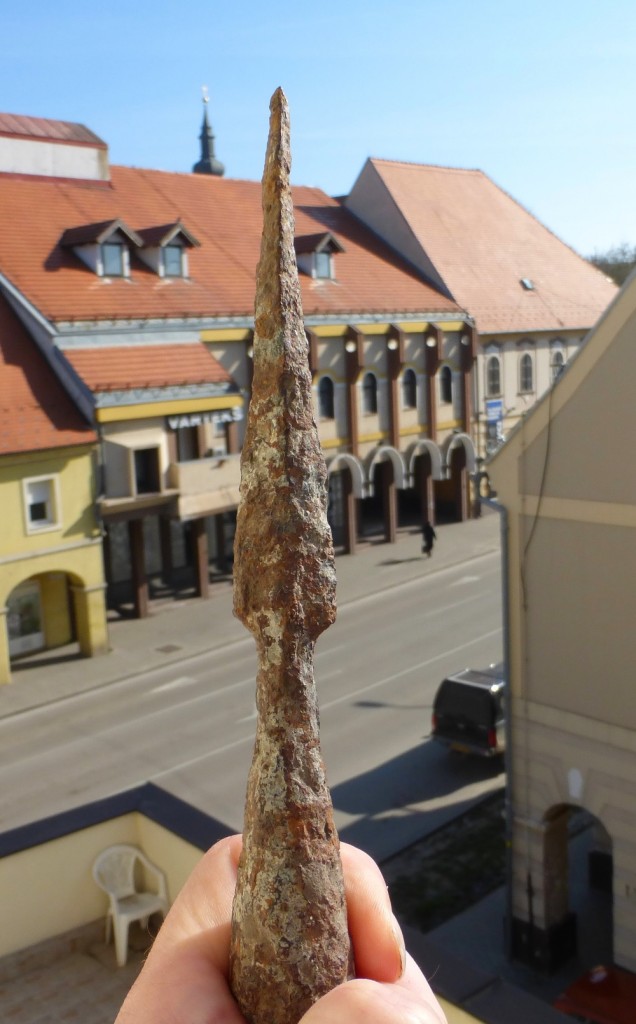
Eventually, a younger team took over at the museum and I managed to convince them that the detector was a tool that couldn't be ignored and eventually the staff as a whole became pro-detector.
2. What are the rules? Presumably you can't just find and keep your finds. How strictly are things enforced in Croatia?
There are no laws against metal detectors, but that doesn't stop the police and aggressive museums from moving against them.
What there are are laws against "Illegal archaeological excavations" and "Taking into possession items of cultural value." What this means is that if a local museum and the local police are on good terms, they will work together to prosecute detectorists on those two counts. This manifests itself in two ways. The law is that everything of cultural value belongs to the State. So, if a detectorist finds something, he should hand it in to the local museum or representative of the Ministry of Culture. In practice, museum staff have been instructed to break the law and REFUSE any items brought in from detectorists. On some more cynical occasions, a museum has taken the best items, told the detectorist he can keep the rest, the sent the police round. Osijek Museum is infamous for this. On a recent rally I sent out two scouts to find new fields and they were stopped by traffic police who looked in their camper van, saw their machines and arrested them. Two new detectives to the area were ready to charge them with illegal archaeological excavation, but the police chief who knows the local system tore into them and put them straight. Too long have lazy or jealous museum staff used the police to bully law-abiding detector hobbyists.
(Steve Gaunt, the metal detectorist)
3. I hear that your personal contribution to the museum in Vinkovci is quite significant. Can you be more specific?
My personal contributions are that I have discovered over 70 previously unknown sites and thousands of artefacts.
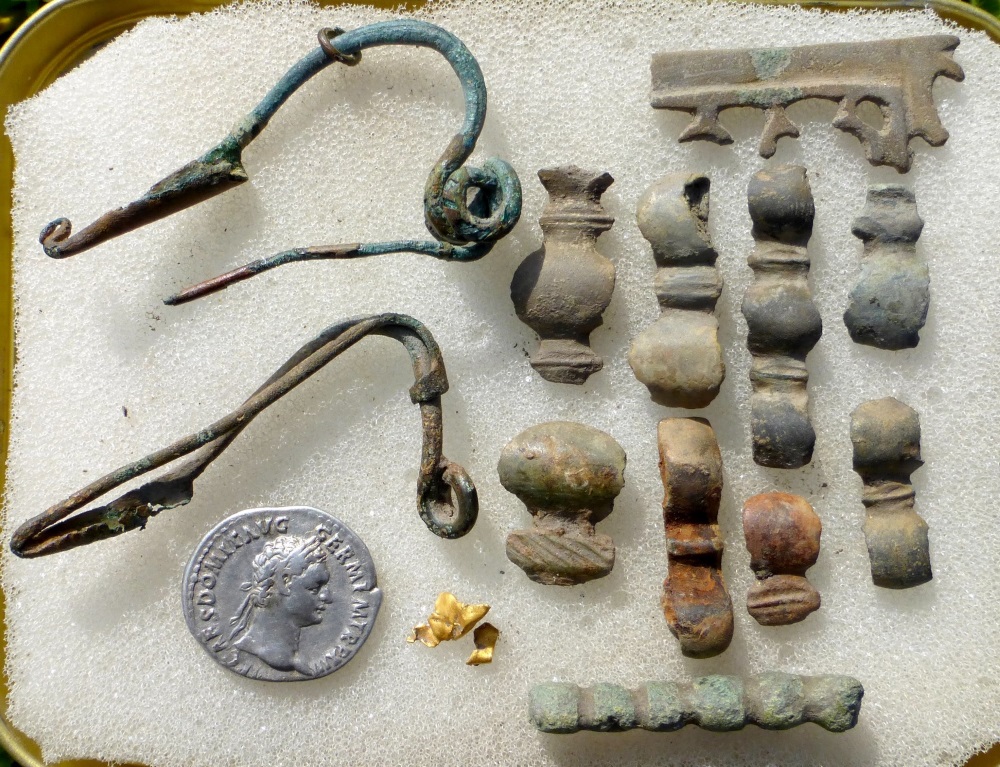
4. Tell us about some of the finds you have had?
I have found unique items, Celtic, Roman, Greek provincial and medieval coin hoards Whole burial grounds, lost villages and Roman villas.
5. Tell us about the archaeological potential you feel there is in this part of Europe. Vinkovci the oldest town, Vucedol an ancient culture etc.
With regard to potential, this changes from year to year. Ten years ago I could find the ruins of local buildings with perfectly preserved artefacts. But agriculture is the main enemy of archaeology. I can now inform the world that all metal age sites and most Neolithic sites on arable land in Croatia are totally ploughed out. What does that mean? It means that the plough has destroyed everything and all that is left are a few metal artefacts that deteriorate continually due to machine damage and chemicals. In a few years there will be nothing left for the detectorist to recover.
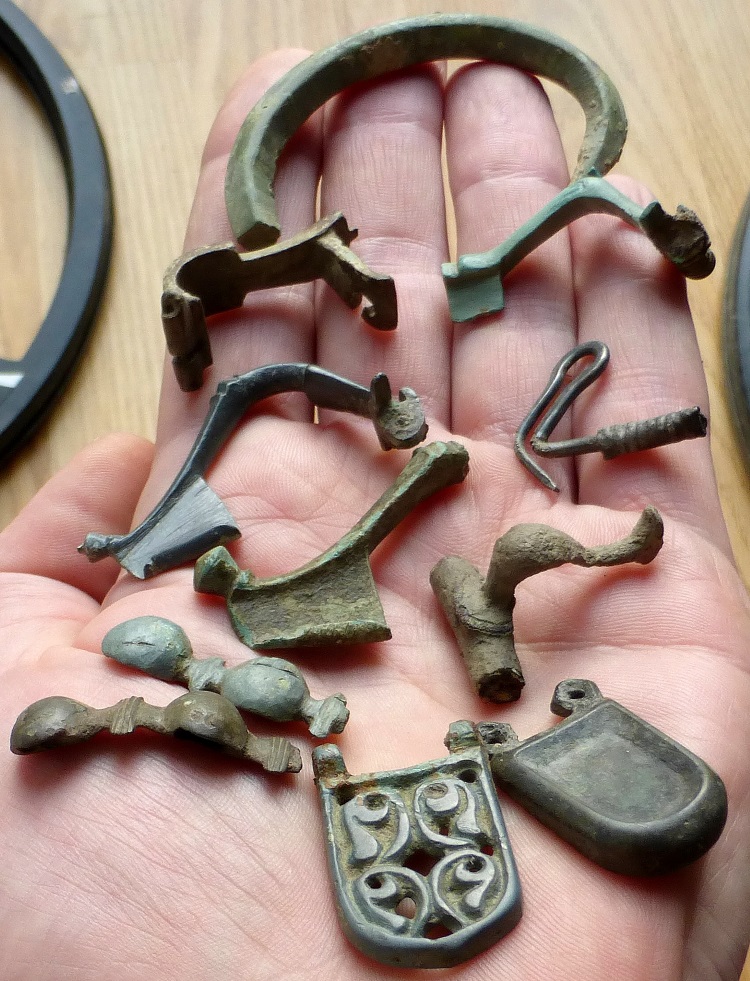
6. I am sure that metal detecting in this region has not been without controversy. Anything you would like to share?
Controversy. This means that detectorists can fill a museum with stuff and it is never mentioned, but the moment someone pockets a coin then the wave of hate descends upon us. A recent example shows the ignorance of many archaeologists. A deep tomb was excavated by robbers over time. When the staff of Varaždin Museum finally visited the site, they found that it had been systematically looted over time while no locals noticed anything. The archaeologist in charge then screamed to the press " We knew something would happen when we saw detectorists in a field 3 kilometres from this site. Good grief! Unfortunately they continue in the same vein and recently Jutarnji List has repeated the same unfounded allegations. Archaeologists believe that commercial metal detectors can go 5 metres deep, when in reality its 25 cm.
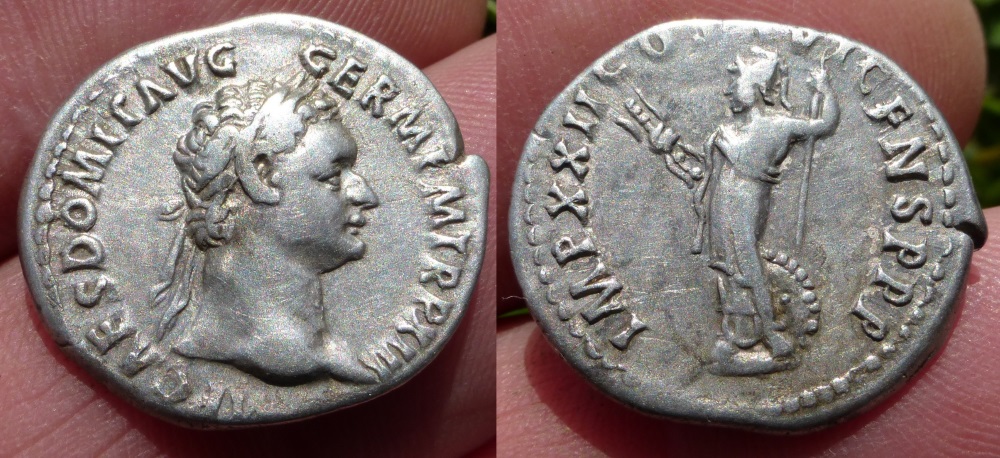
7. You have attracted some enthusiasts from the UK to this part of Croatia in search of treasures under the ground. Tell us more.
Due to the destruction of sites in Slavonia, I decided to organise two metal detecting events a year when right-minded folk could come over and help pinpoint sites and recover remaining artefacts for the local museums. Usually we worked with permission of the Ministry of Culture which allowed us to detect even on protected sites. We have had ten of these events to date.
8. When is your next tour and how do people sign up?
We are planning the next official tour in March 2021. You can contact me via the White Boar website for more information.
Apart from donating everything to Vinkovci Museum, Steve has also preserved a momento of some of his findings in a book he wrote - Medieval Ring Designs.
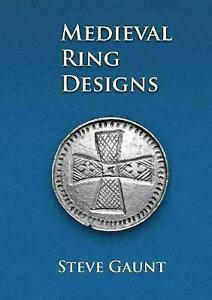
Want to learn more about the oldest continuously inhabited town of Europe? 10 things to know about Vinkovci.
How I Came to Open an English Pub in a Field in Eastern Croatia
November 2, 2019 - An authentic UK telephone box in Europe's oldest town, an English pub in a Slavonian field, Yorkshire puddings in a Vinkovci restaurant, and Croatia's first cider apple orchard. Meet Steve Gaunt, the man behind a little bit of Yorkshire in eastern Croatia.
Croatia never ceases to amaze, but my recent trips to eastern Croatia have made me realise that I will spend several lifetimes in this beautiful country and never get to know it completely. My first visit to Vinkovci, the oldest continuously inhabited town in Europe, started with a very bizarre sight - an authentic British phone box.
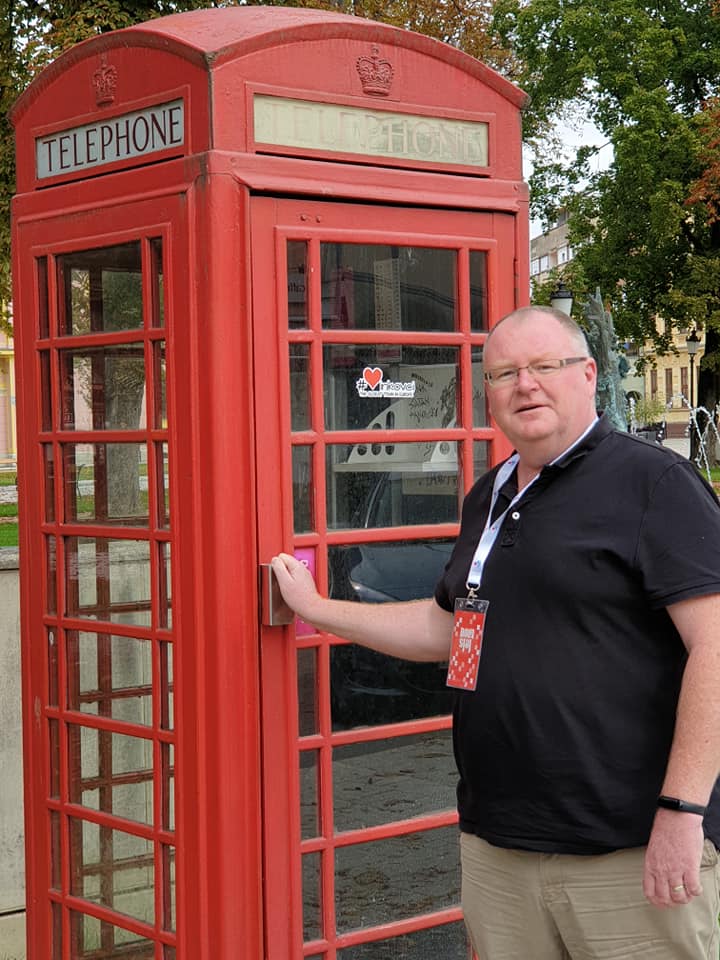
Little did I know that the phone box was just the start of it. After asking a few questions, I learned about a Vinkovci restaurant which used to serve Yorkshire puddings, found myself searching for - and finding - a truly authentic English pub in a field in a village just outside Vinkovci, which is also home to Croatia's first cider apple orchard.
And the link to all of these weird and wonderfully random British things was due to one man from Leeds called Steve Gaunt. Although I have yet to meet Steve in the flesh, I have a feeling that will change soon, and I am grateful to him for finding the time for an email interview, in which he explains why there is a British phone box in Vinkovci, why he opened a pub in a field in the middle of nowhere. And much, much more.
1. One of my recent surprises visiting eastern Slavonia was finding a little slice of Yorkshire in Vinkovci. It started with a British phone box in the middle of town and ended with me in a field in a nearby village standing outside an authentic-looking English pub called The White Boar. And you are the chap responsible for it all. Tell us briefly how you came to be a Yorkshireman in Vinkovci for almost 30 years.
Back in 1991 when war broke out here, I was the overseas operations manager for a UK travel company and had the responsibility for running all aspects of overseas operations and troubleshooting. I was in Slovenia when it kicked off there. I decided to go to Croatia in the offseason to see how I could help and ended up in the fledgling army with a bunch of other Brits. That was early November 1991.
I was badly wounded in June 1992, spent three months in hospital, then went back to the UK, worked a while to raise cash then came back here on Christmas Day 1992 and started to piece some kind of new life together. I got Croatian citizenship in June 1993 and also became a photo reporter, eventually becoming hugely successful; almost every day I had a front-page photo in one paper or another.
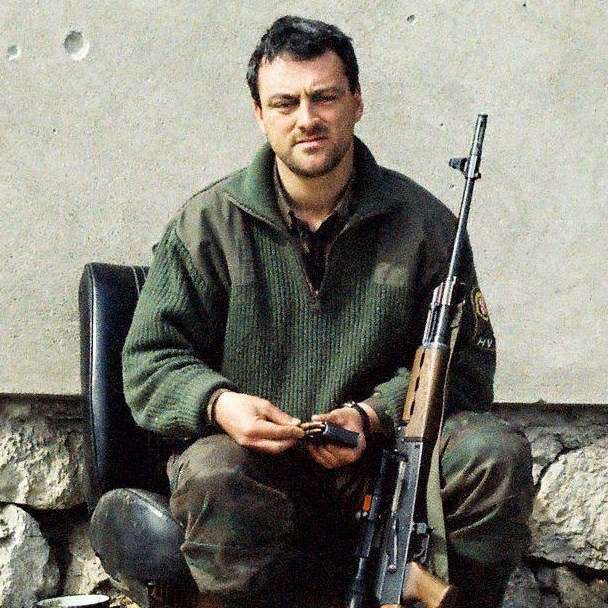
I was captured by Serbs in 1993 whilst on assignment and charged with spying. I was only a month in there but it was the worst time of my life. I started working for the museum on digs and such then married a young local girl and she had six children in seven years.
I keep fit building additions to my buildings and metal detecting. My collection in Vinkovci Museum is valued in six figures. I also build old fashioned HTML5 based websites for small organisations which gives me a little pocket money. The rest of the time I spend shouting at Croatians that I am not responsible for Bleiburg.
(A keen metal detecting enthusiast, Steve organises a metal detecting rally - here he is being interviewed about it.)
2. And before we talk about the pub, what is the story with the telephone box?
The telephone box was an off-hand joke. After the war had quietened down, aid came from various organisations. One of these was CARE (Croatian Aid & Relief Expedition) based in South Wales. This organisation along with others brought in tons of stuff in a most disorganised fashion. After meetings with them we organised them to adopt a village (Cerić) and bring what they needed at the time of progress with resettling in their devastated village, things like tools and materials in the beginning, toys, and other non-essential items at the end.
This worked well and after 4 years they thanked me and asked me what I wanted for myself. Taken aback, I said a barrel of Tetley's bitter or a phone box. Not thinking to hear from them again, I got a call telling me the truck with the phone box was on its way. I went to see the mayor and he jumped at the chance to have it. As there had been a public telephone on the spot where mine now stands, we had no bureaucratic problems. I only insisted that the light should work and that a phone was installed.
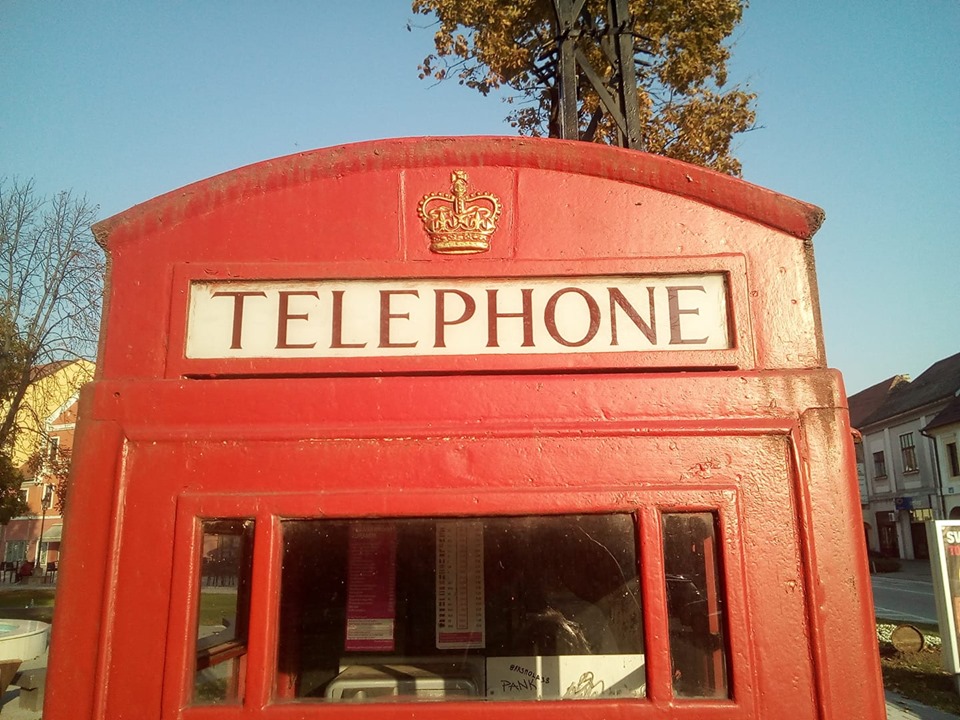
I recently found some gold paint and so touched up the phone box since your visit. As you can see, it makes all the difference.
3. And before we talk about the pub, I also heard a rumour that you introduced Yorkshire puddings to the menu of a Vinkovci restaurant. True, and what was the story if yes? How did locals take to them?
Yes, it is true, Yorkshire puddings were once served in a Vinkovci restaurant. It was called Ruža ( sadly gone now) and they learned very quickly how to make the perfect Yorkshire pudding. If only I could get them onto making pies in this country... People liked the puddings, but this was just after the war, business was slow, and money short. The restaurant eventually closed.
4. And so to the pub, which really took me back to rural England. Tell us about the idea and the realisation. Getting anything built in Croatia is a challenge, and I assume that an English pub might have involved some additional fun and games.
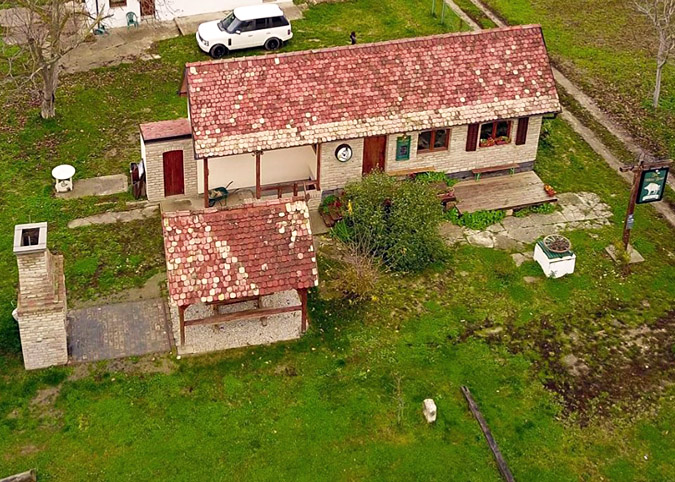
I know you had problems with paperwork in Dalmatia, but I can actually transfer ownership of land or a house in Vinkovci in a single working day. I just sold a house for one English friend to another English friend, despite the shadow of Brexit.
So, one day a local guy who was my sergeant in the war asked if I wanted to buy his land. Well I had no money, but agreed to take a look. As you know from your visit, it was a bit of a lonely spot and I wan't sure, but the plot was in the building zone. Just before we left I heard a nightingale sing from a plum tree at the end and that swung it.
He wanted 2400 euro and I offered to pay 100 a month for two years. He refused, but called me the next day and said OK. Later on, he reduced the price if I could pay the rest immediately and by luck I had some money then and paid up. Then I started building a small wood-framed house at the end of the plot, which is the little white house at the end of the field.
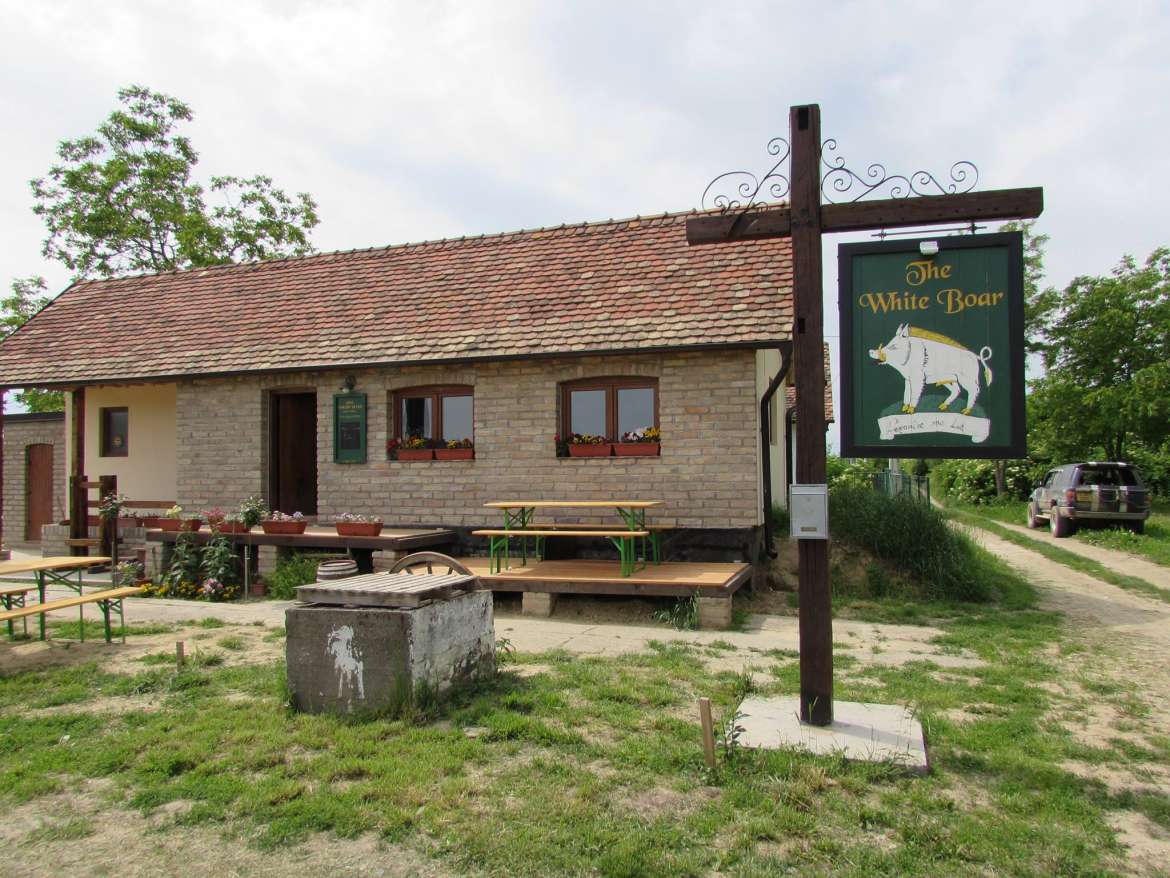
Now this plot was in an area that was an abandoned hamlet and all the plots but the one over the path from the pub were for sale, but at a price. This was 2013. Then I was approached by the widow who owned the house where the pub now stands and that came with two plots. She wanted 3000 euro and I had the money borrowed and paid before an hour was up!
I knocked down the old house and put in a cellar, then built the old house back where it was. I had dabbled with brewing before and thought it would be a fine idea to have my own little pub for it (we have a flat in Vinkovci so didn't need a place to live as such). I had also planted cider apple trees and hoped that they might thrive and let me make cider (again, mainly for myself).
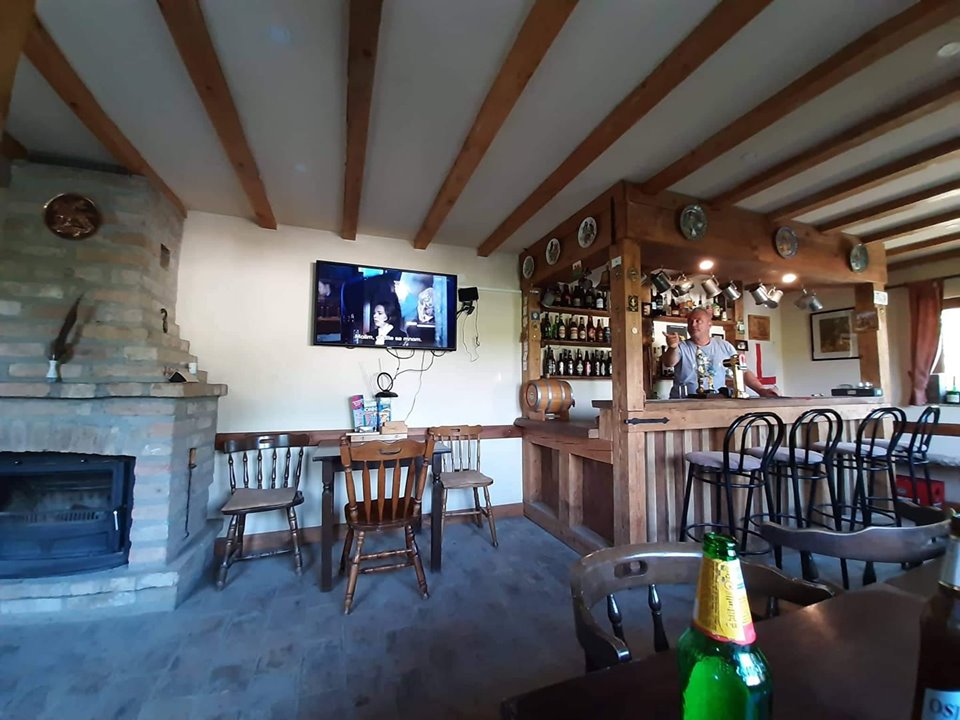
I got the electric company to put up 18 poles to run electric there and that doubled the value of the land for me and all my neighbours. I finished the pub with the help of my children in March 2016.
Meanwhile, fellow metal detectorists had been visiting from the UK including Gordon Heritage of Discovery Channel fame. Gordon wanted to move nearby so we got the cottage to the left of the White House and fixed it up fior him. Two others came and took the house behind the pub, which we rebuilt in 2016 and another mate took a house over the railway line where the little horses are. So now we had an English village.
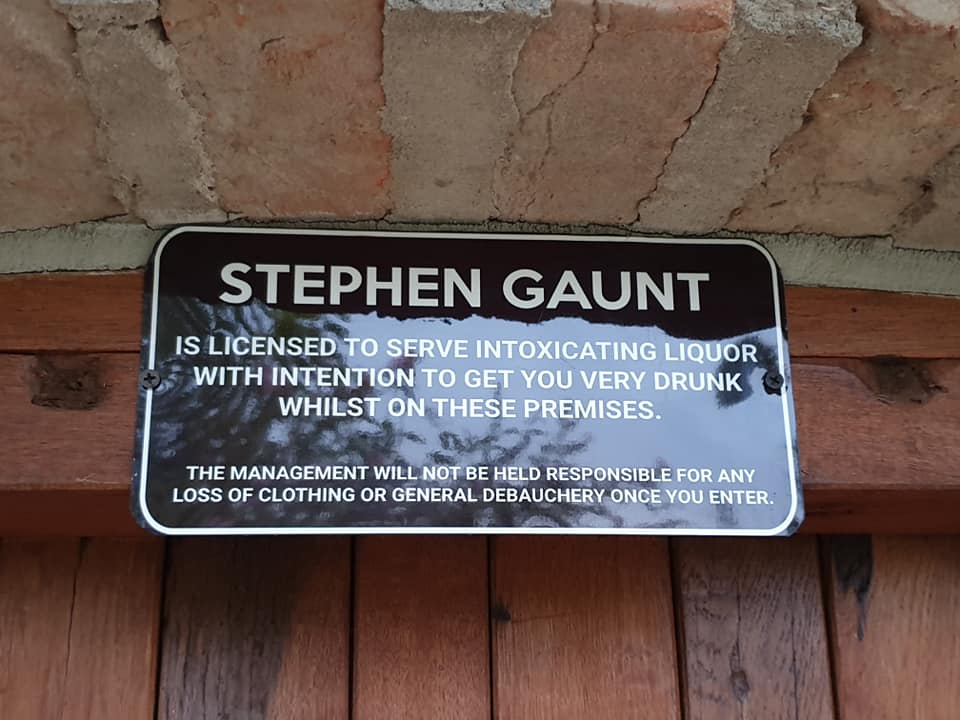
5. You have a really great beer selection on offer. Tell us about it and how hard it is to maintain stocks and get deliveries. There can't be many Yorkshire beers being shipped to eastern Croatia.
British beer comes in haphazardly, every visitor always brings me a load. Some can even be bought in Lidl. But I don't rely on them, there is a decent local brewer who listens to me and he produces two good ales. But where the Croats are concerned, they don't care much and will drink any Croatian beers, which are getting better and more varied.
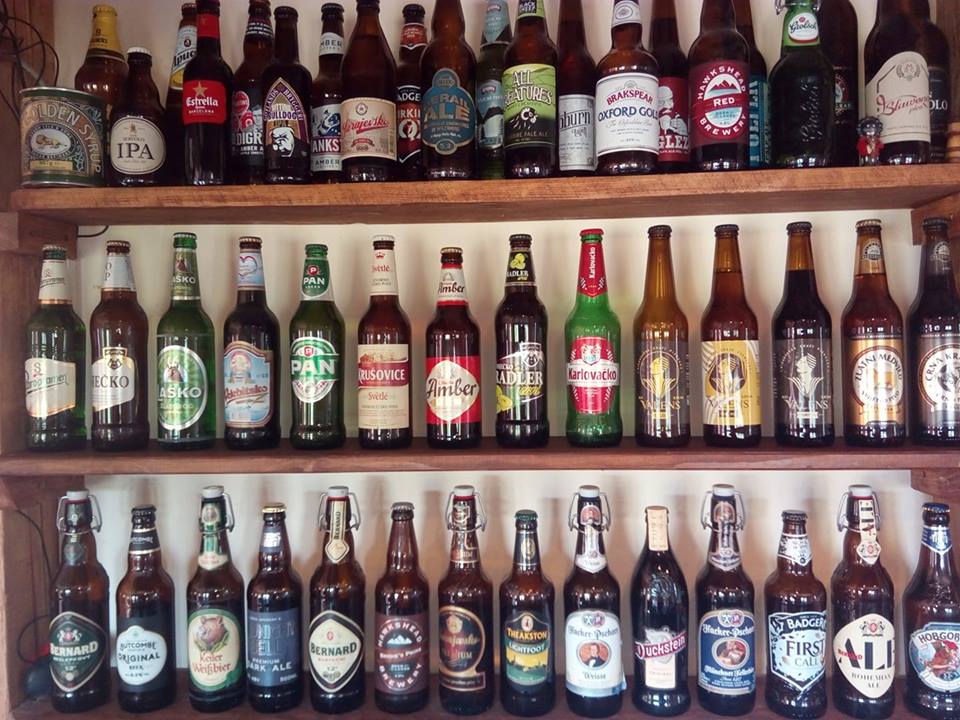
I only put draught on when there is something important happening, such as a private party, a detecting rally, or the event we have on the 18th of November each year when foreign volunteers attend the event in Vukovar then party at my pub.
(The foreign volunteers who fought for Croatia in the video above)
6. How is business? I assume you have a loyal set of regulars. Do many people know about the pub and do you get passing tourist traffic?
There is not much business outside organised events because I can't always have someone there. Locals don't often come, but enjoy it when they do. Whilst waiting for you we had some locals and folk from Knin, Delnice and Osijek. My second son always has partied there but that doesn't put anything in my pocket. To be honest I wouldn't want to run it as a business, far too demanding. I am happy as it is. You can see more about the pub on the Facebook page. There is also a website.
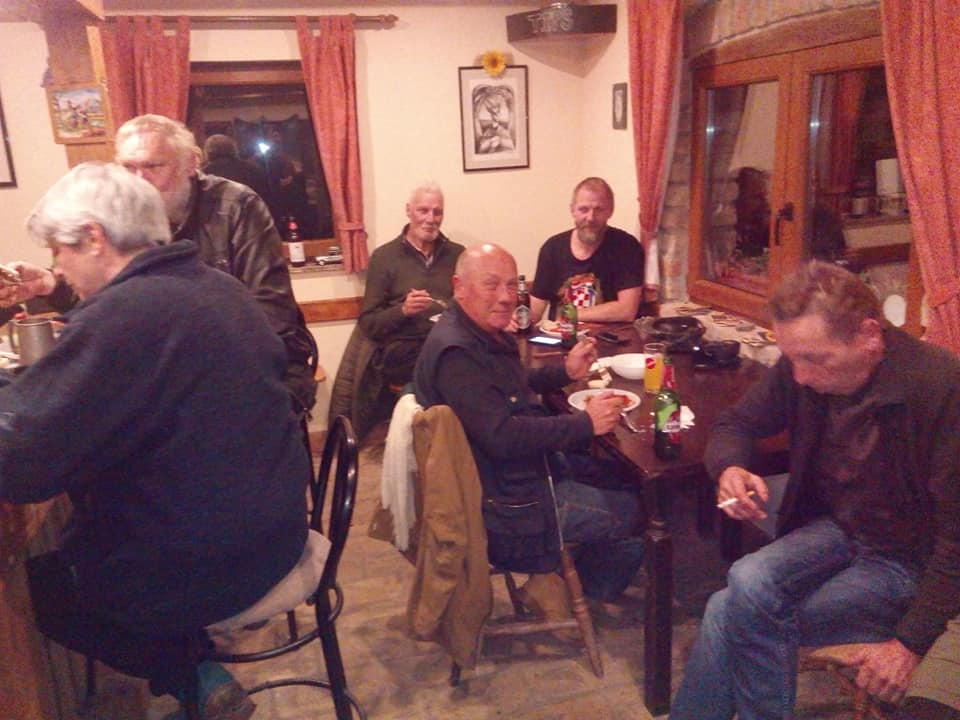
7. Did I see cricket on the pub's Facebook page? And cider production?
Well I have the equipment and myself and another local English volunteer and invalid, Rodney Morgan, like cricket, though we can't play, but we get the gear out and try every now and then until broken roof tiles and car windows puts us off.
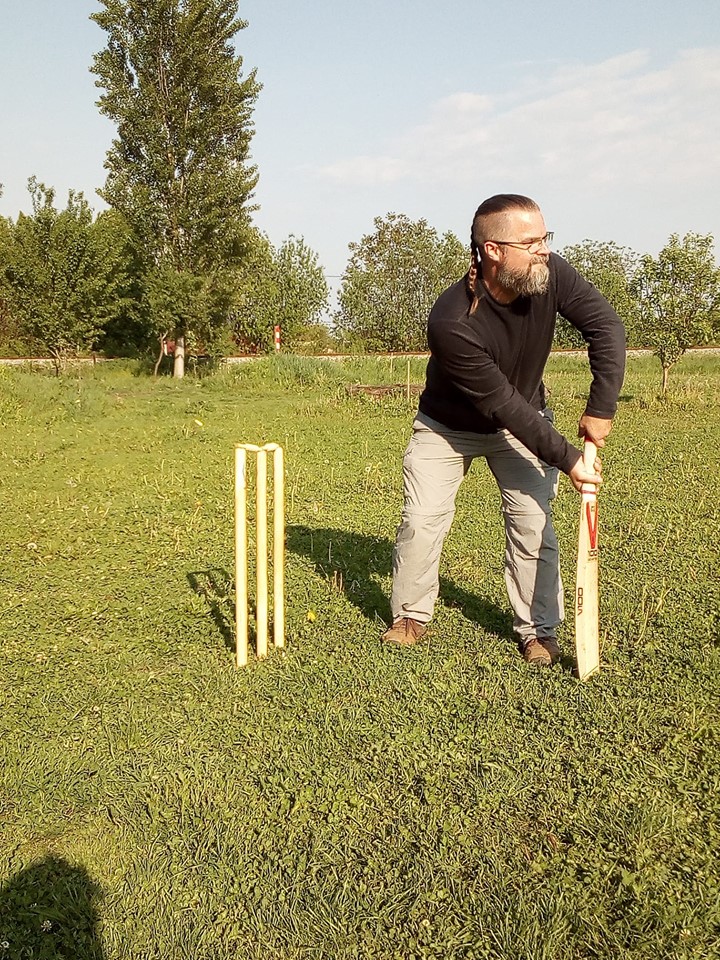
I ilke cider. I thought I would make Croatia's first cider orchard so planted about 50 trees and set about the great and painful five-year experiment to see which (if any) English varieties would thrive, or at least survive. I got a chap in the UK to send cuttings and I grafted them onto local varieties, and now have about 10 different ones, two of which show promise, though the drought of the last three years has set them back some.
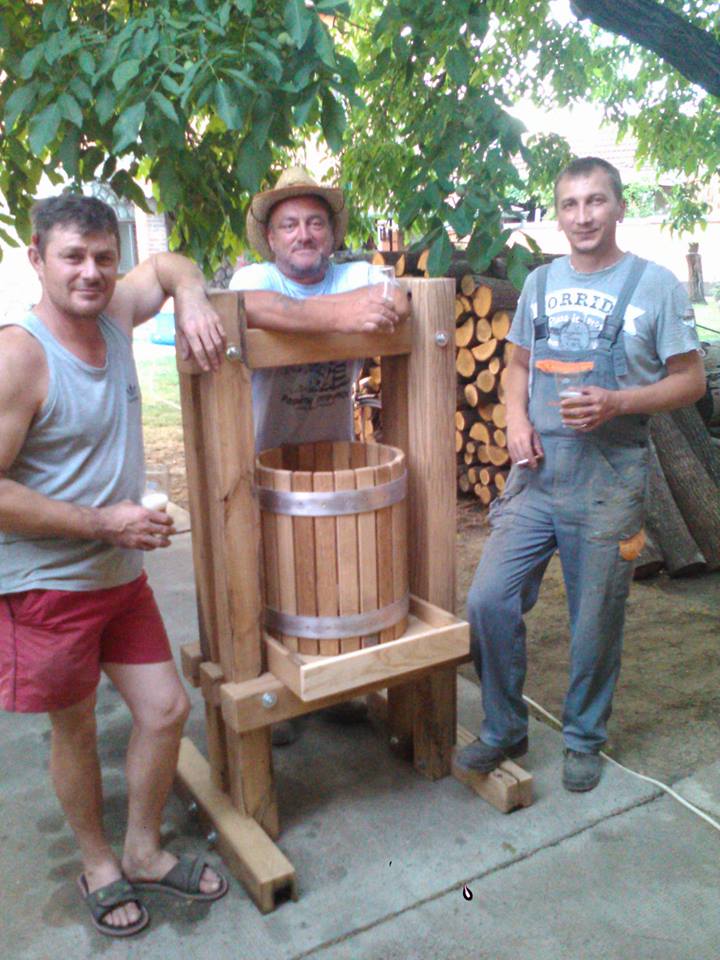
I got just 12 litres of juice from this year's meagre crop, but if I can make it work, I have customers for every drop I can make.
Anyway, Gordon will buy brewing gear so if the cider doesn't pan out, then we will make beer (the thing with my English neighbours is, they are rich and I am poor, at least financially).
8. For those wanting to come for a pint and meet a Yorkshire legend, tell us where the pub is and how to find it.
The pub SHOULD be easy to find, I have put it on Google maps but they continually refuse to correct the errors in the street layout and naming. 'Here we go' maps have it perfect now.
This is the correct location above, and below what Google Maps will give you. You need to take the path to the left of the railway line, whereas Google sends you on the right.
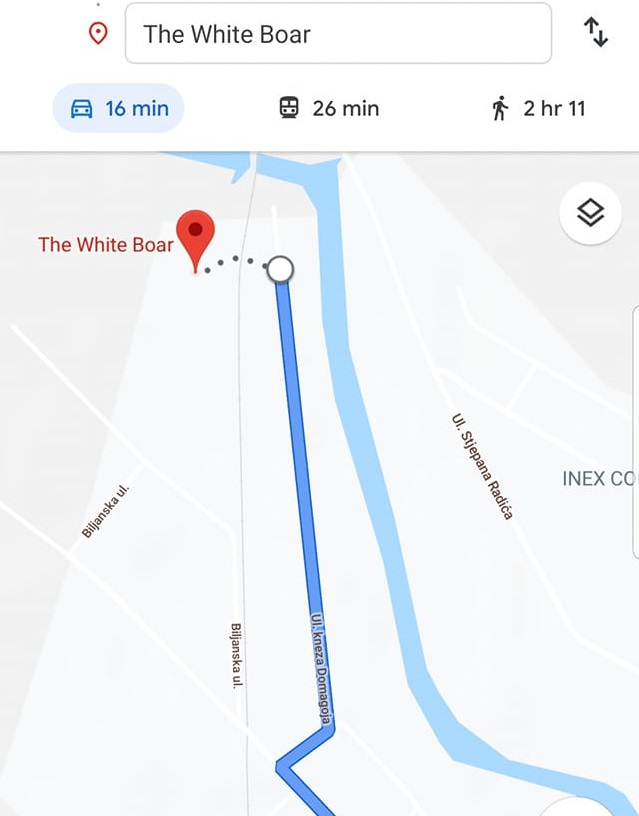
I am on my land almost every day, that is always something to do (check out my Facebook page) and it gives me a quiet place to write and update my books (I have published a book on medieval rings, because nobody else had). There is also my diary of the war, just basic stuff, but it sold well in Croatian language and some other published projects.
Željeznička Ulica 39, Andrijaševci
Call 098 667 527
And this is how I eventually found The White Boar.
Finding Steve's pub was just one of many discoveries on my recent trip to Slavonia. Check out 9 other things I learned while visiting during Days of Croatian Tourism.


